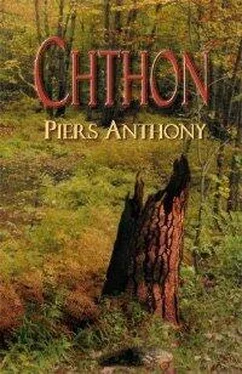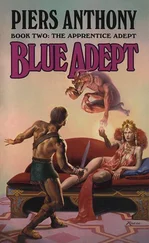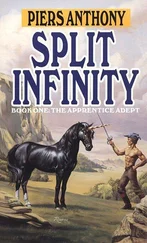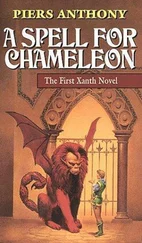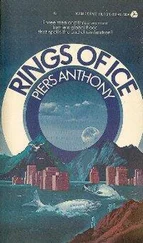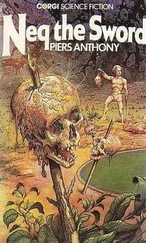Piers Anthony - Chthon
Здесь есть возможность читать онлайн «Piers Anthony - Chthon» весь текст электронной книги совершенно бесплатно (целиком полную версию без сокращений). В некоторых случаях можно слушать аудио, скачать через торрент в формате fb2 и присутствует краткое содержание. Город: 1967, Издательство: Ballantine, Жанр: Фантастика и фэнтези, на английском языке. Описание произведения, (предисловие) а так же отзывы посетителей доступны на портале библиотеки ЛибКат.
- Название:Chthon
- Автор:
- Издательство:Ballantine
- Жанр:
- Год:неизвестен
- Город:1967
- ISBN:нет данных
- Рейтинг книги:5 / 5. Голосов: 1
-
Избранное:Добавить в избранное
- Отзывы:
-
Ваша оценка:
- 100
- 1
- 2
- 3
- 4
- 5
Chthon: краткое содержание, описание и аннотация
Предлагаем к чтению аннотацию, описание, краткое содержание или предисловие (зависит от того, что написал сам автор книги «Chthon»). Если вы не нашли необходимую информацию о книге — напишите в комментариях, мы постараемся отыскать её.
Nominated for the Hugo Award for Best Novel in 1968.
Chthon — читать онлайн бесплатно полную книгу (весь текст) целиком
Ниже представлен текст книги, разбитый по страницам. Система сохранения места последней прочитанной страницы, позволяет с удобством читать онлайн бесплатно книгу «Chthon», без необходимости каждый раз заново искать на чём Вы остановились. Поставьте закладку, и сможете в любой момент перейти на страницу, на которой закончили чтение.
Интервал:
Закладка:
Aton could not reply immediately. She had waited a long time—but their meeting had been too soon. “Death and love were always linked, for us,” he said, not looking at her. “The death of illusion, the love of pain. I had to think that you were evil, and you had to let me believe that. But my resistance was stronger than desire. I left you, after all.”
“Did you, Aton?”
The path became steep, though the wind had dropped. He helped her climb, though she did not need it. Their discussion died as she seemed to metamorphose again, to fit his lonely parade of memories. Now she wore a pack and her blonde hair fluttered in an idle gust. On her wrist the silver circlet glittered.
Aton felt a qualm, suddenly wondering whether there had ever been an interlude with a pretty slave girl, a second love hoping pitifully to combat the first—a love that would have saved him from Chthon, had he been able to accept it. Had she been a genuine person at all? Or only another translation of his imagination? Had he ever really left the side of the minionette?
Theme of the shell! Were you part of the broken song? Was my dream vain, even then?
Even then…
Nothing dies on Idyllia—except hope.
They were at the top of a hillock representing a mountain. Aton forgot his doubt. Under the massing clouds the view was beautiful, bright with that special color of early dusk. The shell, the song—no use to understand.
“I love you!” he shouted, his voice distant in his own ears. “I love you—” and once again his emotion was honest and strong.
Her hair was red; it was black; it was writhing in pain and she fell, as she had to fall, stricken cruelly. Thunder blasted sky and forest and field and love, and the rain fell, drenching, soiling all of it. And the melody he loved was washing away and soaking its blood into the ground.
He tumbled after, rolling, bumping, down the hillside, shocked with the blow he had dealt unwittingly, grasping at the song and finding only mud and torn weeds. Love was forbidden. He had never taken a woman for love, only for morbid purpose. Always the song had severed love—and now he was beyond the song; he had lost it, broken it forever… and the cold water sheeting into his upturned face was drowning him.
The rain stopped, in an hour or an instant, and Aton was in the swamp at the foot of the hill, beside the foul pond that bred the vicious annual larvae and spawned the deadly blight. On the far side lay the body, naked, lovely, but not dead, not dead. From the dark surface of the pool came a green glow, a Chthon-glow, casting back the slimed shadows and betraying the ominous ripple at the rim.
Suppressed memories stirred in him, intimations of horror and terrible slaughter. He had been here before. He had—
The undead body rose, and the hair was neither blonde nor fire but a soggy in-between. The form of it was not divinity but merely female. She came at him, circling the dark pool, treading on a narrow ledge.
Aton stood on that ledge too, unable to retreat from the noisome brink. There would be no way to avoid her, except to run around that nightmare track in helpless flight, unable to understand his panic. He did not yield to it; he stood and watched her slow march toward him, her small, heavy steps. He watched her second body march in step behind the first, and the third behind that: many bodies, horrible bodies.
Terror triumphed. He spun away from the pool—but the choking rain was up in walls he could not penetrate, arching unbroken into an opaque dome overhead. He could not break out.
He looked into the pool, and it seemed to him that the shapes in it were not tall weeds, but tongues. One was larger than the rest, nearer; it was a gross tubular tongue that came up blindly casting for flesh. It would sense him soon, and slap its way in his direction.
He fled, feet skidding. But from the opposite direction some other thing was coming, something dense and lateral, a massive spike, and there was no escape.
Aton spread himself with his back to the slippery wall, raised his eyes to the arching bowl above, and forced himself to think.
He thought not lucidly and not well, the appetite of his intellect gagging on the sickening stuff before it, but digesting enough to save his waning strength and make his world stand still for just a moment.
This impasse, this horror is somehow of my own making. It cannot be real, in a physical sense. Only in Chthon are such things literal.
My mind has clothed its tumult in some frightening allegory, as it has done before. It has dramatized my mental conflict, forcing me to solve it now, or give up the pretense of sanity. I am standing on the bank of the swamp pond, and there is no monster in it, no wall around it; there is only the incipient blight and the steady rain. There are no reduplicating figures closing in on me, no terrible spike from the other side; only the woman I love and must hate, the alluring minionette.
But the conflict , he knew, was real, and his moment of decision had come—whatever the elements of it might be, and whatever its resolution might mean. He was trapped by a web spun long ago, when he had followed the half-heard melody into the wood and became its slave. Throughout his life he had been unable either to complete it or to escape it. Chthon itself had not resolved that dilemma. Now he had to face the ghastly alternatives himself, and embrace the rigors of that choice.
The marching column of women represented Malice, in all her forms: ubiquitous, but unable to accept direct love. His normal emotion was a sword, wielded against the minionette. Should he slay her with that love?
Or should he wait for the dread spike closing from the other side: the obscene inversion of their relationship? Impaled on it, he would become a creature of perpetual hate, a minion, his self-identity and integrity buried in sadism. She would flourish; her song would be complete. But he—
He stared into the rank water and saw huge movements there, and heard the limber tongue slap nearer. He could escape his choice by flinging himself into the maw of that personified muck. The septic threads of slime would foul his skin and imprint in it the malodorous blight that had taken his father. It would not be merciful.
Did Aurelius still live? Aton did not know.
There had to be some other alternative. Some outlet that would free him, or at least postpone the choice. A drain, an exit from the pool—some rushing aperture leading into the unknown, but an escape, a relief. Could he find it?
When he recognized his need for it, it was there: an opening into the unknown. It might lead to death, or to choices more appalling even than those he fled from. Once taken, this step could never be withdrawn, as a plunge into a waterfall cannot be reversed. He hesitated.
“Aurelius is dead,” the minionette said, very close. She would have felt the old man go, vanquished at last by the genuine pool-monster, the blight. Aton had felt the loss himself, had felt the cessation of an emotional compartment, in that half-telepathy he had never before admitted he possessed. That same sense hinted darkly that he had had some part in the death of his father, however unintentionally. Had the decision he was making been so wide-ranging? Was this the price of his escape?
Committed now, by obscure circumstance, he took the step, refusing to examine whatever hideous price was being exacted. He would skirt the verge of insanity itself. For the sake of the fainting hope it offered. The swirling vortex sucked him in, and the dark smothering wave closed over him, carrying him after all to—
Fifteen
Aton found himself on the surface of the spotel asteroid, naked between its bulk and the immensity of space. Naked because this rock was featureless and night was close; no gravity comforted him with her embrace, no atmosphere caressed his clinging suit. Only the static action of his boots maintained his tenuous contact with the little planet, linking them firmly enough so long as he did not deliberately wrench both feet away at once. So long as he did not jump.
Читать дальшеИнтервал:
Закладка:
Похожие книги на «Chthon»
Представляем Вашему вниманию похожие книги на «Chthon» списком для выбора. Мы отобрали схожую по названию и смыслу литературу в надежде предоставить читателям больше вариантов отыскать новые, интересные, ещё непрочитанные произведения.
Обсуждение, отзывы о книге «Chthon» и просто собственные мнения читателей. Оставьте ваши комментарии, напишите, что Вы думаете о произведении, его смысле или главных героях. Укажите что конкретно понравилось, а что нет, и почему Вы так считаете.
